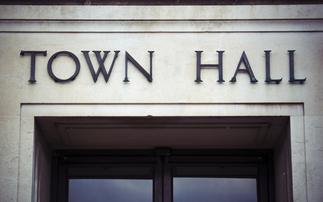Former UN climate chief, Yvo de Boer, says progressive companies must do more to help politicians understand the business landscape
Economic growth and sustainable development are complementary in that we cannot have one without the other, and a key element that can help to achieve both objectives is green investment.
A growing number of companies around the world are changing their business models to recognise the importance of sustainability and the need to address climate change. The private sector is increasingly working to shape a society that is sustainable and is developing business models and investment options that recognise global trends on climate, energy, food, water and scarcity.
Many big banks are shifting their priorities to financing renewables, including wind power, solar energy and new technologies as they acknowledge the fact that achieving environmental and sustainability goals is a path to a stable future for "business-as-usual" investment. Citigroup pledged to invest $100bn in environmentally sustainable projects and Deutsche Bank, recently accredited by the Green Climate Fund, is financing projects related to renewable energy, energy efficiency and technologies and providing an opportunity for investors to allocate capital to sustainable products.
Companies are developing successful examples of growth through innovation. For example, Unilever recognizes that a "new, bigger" approach to innovation and greater use of technologies are driving growth amid sluggish sales. Accelerating its innovation capabilities has helped Unilever to achieve an increase in turnover while expanding the number of projects using new technologies. General Electric is taking advantage of new technologies by putting emphasis on approaches to collaborating, reviewing performance and manufacturing.
Despite positive signs of increasing private finance into green investments - clean technology and renewables - there remains a considerable shortfall in investment.
Trillions of investments are made in infrastructure around the world, but today's market and policy conditions drive them to brown rather than to green. This is because the primary goal of businesses is to generate the highest possible return with the least possible risk, and policy makers fail to internalise externalities of subsidised fossil fuels, such as health costs.
Progressing towards green requires creating a policy-friendly environment in a country that is conducive to green investments. Policy makers need to remove barriers to green investment and establish enabling conditions in areas, including regulations, policies, subsidies and incentives to scale up investment and facilitate a transition to green economies.
If green was easy, we would not need Sustainable Development Goals (SDGs), climate negotiations, most of the UN organizations or - for that matter - environment ministries.
Substantial progress has been made in transitioning to green growth; however, we still rely on fossil fuels and require them for our daily lives. What's more important is to understand how long it will take and how challenging it would be to shift away from these sources of energy. Many still have a false perception that renewables are expensive and fossil fuels are cheap because the health costs of burning fossil fuels and the cost of maintaining ageing infrastructure have not been taken into account.
In principle, the current economic model has stimulated significant economic growth around the world and has lifted millions out of poverty.
But at the same time, it is evident that the current economic growth is no longer sustainable, does not adequately consider the well-being of humankind and the needs of the growing population.







